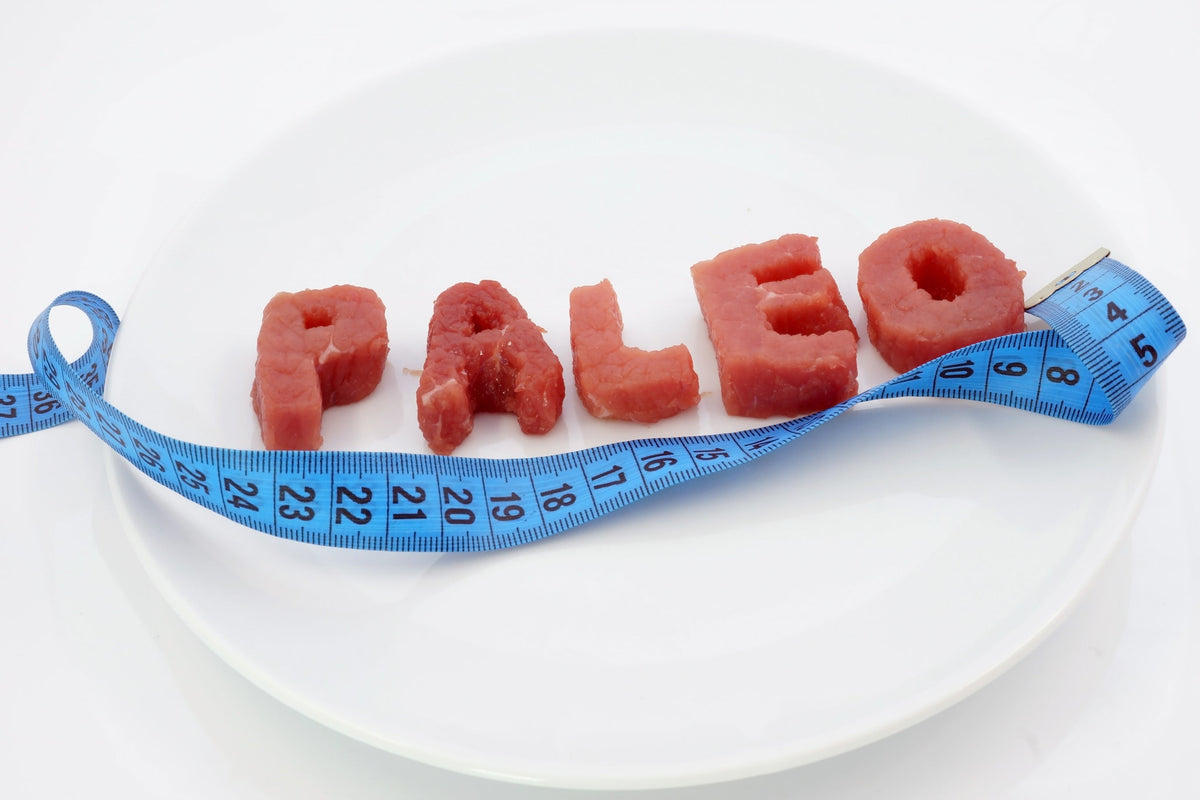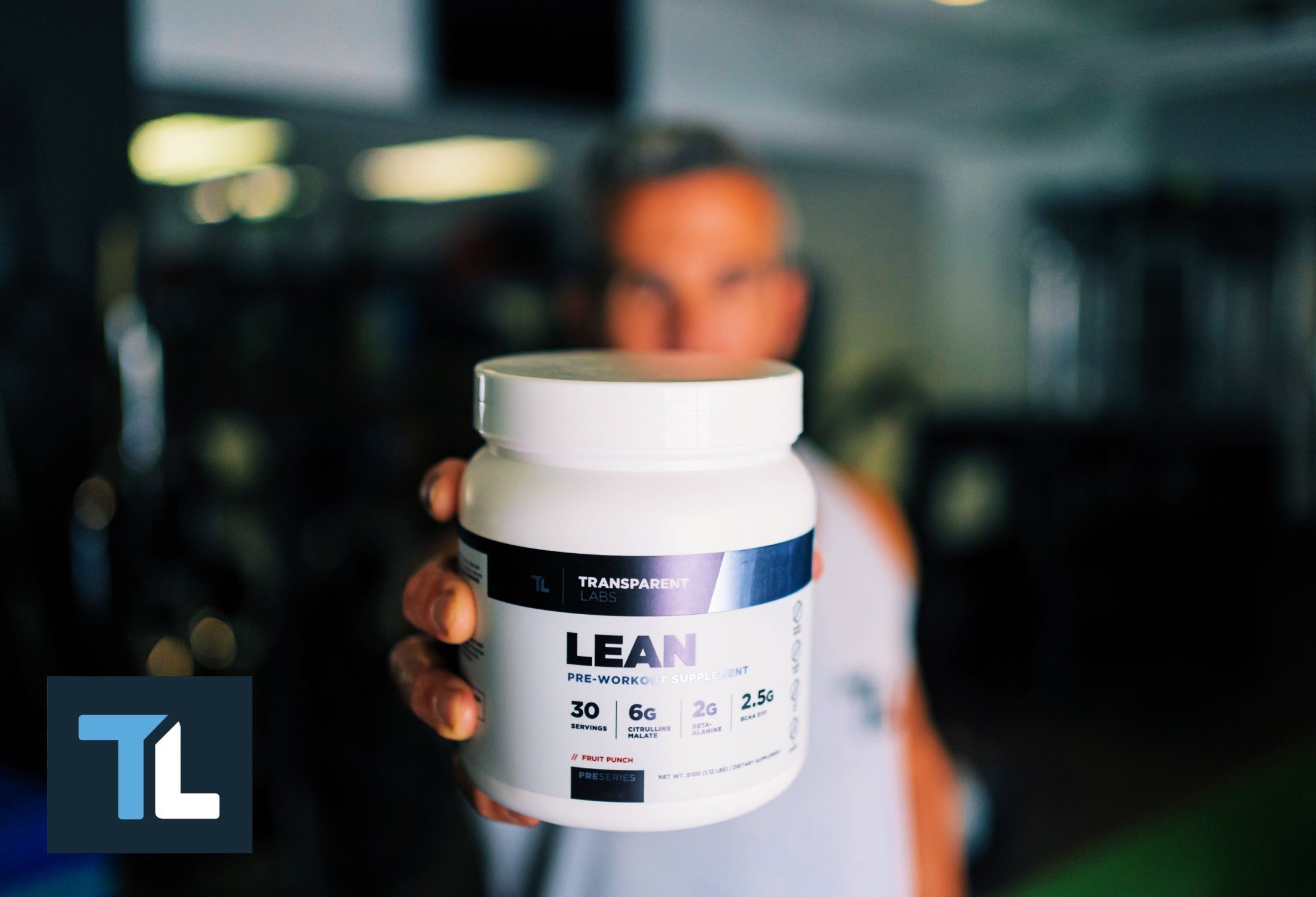Are you looking to burn stubborn body fat and get ripped fast? I have the solution: Ketogenic Intermittent Fasting!
...Sarcasm aside, fad diets for weight loss are rife these days. It doesn’t take much scrolling through social media before you’re inundated by “influencers” and “health gurus” who claim to have the best diet for getting shredded and targeting stubborn belly fat. Heck, just look at the periodicals next time you’re checking out at the supermarket and you’ll see some of the silliest fad diet claims you can imagine.
As of late, the three most popular fad diet trends are the ketogenic diet, paleo diet, and Whole30 diet. While fad diets seem to come and go in waves, these three are not likely to fall off the radar any time soon.
But does this mean they are credible? Well, not necessarily; remember that there is no single cookie-cutter diet that is ideal for all people. If there’s one thing that nutritional science has made evident over the years, it’s that energy balance is by far the most important factor when it comes to health, longevity, and body composition (1, 2).
And sure, there is good evidence that the keto diet may have a handful of health benefits, but it’s certainly not the optimal diet for everybody. If anything, keto appears to be most appropriate for type-2 diabetics and possibly epileptics (3, 4).
Ultimately, it doesn’t matter if you follow the keto diet, paleo, Whole30 or the South Beach diet, if you eat too many calories, you won’t lose weight no matter how much you exercise. The same goes for building muscle; not eating enough will lead to suboptimal muscle growth no matter how hard you train.
The preceding statement is not saying that fad diets “don’t work,” since they absolutely do...for some people.
But the reason why fad diets “work” in some instances is probably not what you think...
How Do Fad Diets Work for Weight Loss?

It’s important to recognize that fad diets “work” for weight loss because they make it easier for people to limit their calorie intake, not because they are medical breakthroughs.
Sounds too elementary to be true, doesn’t it? Surely, there must be some “secret” physiological pathway or esoteric biological phenomenon at play.
Nope. There isn’t; it really is that simple.
As an example, the “ketogenic diet” is a bit of a misnomer given that even people who consume higher-carb diets still produce ketones from fat metabolism. The keto diet just helps you produce more ketones by restricting carb intake and eating more fat.
Just to clarify, ketones are not “magic,” and sugar is not evil (we will touch more on this shortly).
This is not meant to discourage you from trying a fad diet if you feel inclined to do so, rather it just illustrates what these diets actually do. Weight Watchers, the Atkins diet, Slim-Fast, paleo, keto, Whole30, you name it - they all serve the same purpose: Helping you control your energy balance.
With that in mind, let’s take a look at what research (or lack thereof) has to say about fad diets, specifically keto vs. paleo vs. Whole30.
Paleo vs. Whole30 Diet
In contrast to the keto diet, scientific and clinical research pertaining to the paleo diet and Whole30 diet is scarce, to say the least. To my knowledge, there is literally no peer-reviewed research available on the Whole30 diet.
Any purported health benefits of these diets stem almost exclusively from anecdotal evidence. But hey, “It works for me so it must work for everyone!” is always sound logic when giving people diet advice...
Those who follow the paleo diet are generally committing to a lifestyle of eating nothing but eggs, seafood, meat, veggies, some fruits, nuts, seeds, and legumes/lentils. The Whole30 Diet is designed to be a 30-day cleanse, though it emphasizes foods that are very similar to what you would consume on the paleo diet.

Short-term “cleanses” like the Whole30 diet are actually quite nonsensical; there is next-to-no research suggesting that any type of “cleanse” is healthier than simply eating a well-balanced diet.
Ironically, the Whole30 diet requires no calorie or bodyweight tracking. It’s interesting that we know energy balance is key for weight loss, yet the Whole30 diet tells you to completely overlook it. The word we generally use to refer to this type of diet is “quackery.”
The paleo diet, more sensibly, encourages you to monitor daily calorie intake; though, it’s not without flaws of its own...
What is the Whole30 Diet? Is it Healthy?
In short, the Whole30 diet is nothing more than an elimination diet; you simply monitor which types of food you eat over the course of 30 days (hence the name “Whole30”) and assess how you respond. The process is much like a “cleanse” in that it’s meant to “rid the body of toxins” and potential food allergens.
The Whole30 diet creators contend that the modern human diet contains foods that negatively impact health, some of which even cause unexpected weight gain. According to Whole30 zealots, these foods include:
- Food and beverages containing added sugars
- Legumes/lentils
- Grains
- Dairy
- Alcohol
Once you complete the 30-day elimination diet, you can slowly reintroduce some of these “off-limit” foods.
As you can see, the Whole30 diet isn’t anything profound when you consider that it just forces people to eat more quality protein sources, wholesome vegetables, and nuts rich in unsaturated fats.
It doesn’t take much brainpower to realize that cutting back on beer, soda, and greasy fast food is generally going to improve your health and well-being.
To reiterate, there have been no scientific studies to date which directly examine the potential merits of the Whole30 diet.
Does the Whole30 Diet Work for Weight Loss?
Firstly, the idea that any food is a direct cause of weight gain is tough to reconcile without further context. Yet, people seem to just accept this notion as being an unassailable truth.
Sugar is the cause of obesity; dairy causes inflammation; gluten is the devil. The list goes on…
But here’s the thing: Remember that energy balance concept we discussed earlier? It applies to all food, even “junk” like candy, soda, etc.
Sure, eating 200 grams of sugar is not going to have the same physiological effect as 200 grams of protein, but it won’t in and of itself cause weight gain. Barring any particular food allergies or preexisting health conditions that preclude you from eating certain foods, there isn’t much reason to restrict yourself to the food groups recommended on the Whole30 diet.
At best, the Whole30 diet might help you identify intolerance or allergy to a food, but any weight loss you experience from it is just a consequence of making smarter food choices that unwittingly help you consume fewer calories.
The main question you have to ask yourself is will it stick?
If you can’t sustain the food choices you make on Whole30 for the long run, then it doesn’t really matter. There are no quick fixes when it comes to your health and body composition.
Ok, so what about paleo, then? Is that any better than Whole30?
What is the Paleo Diet?
Proponents of the paleo diet assert that humans who lived in the Paleolithic era were healthier than modern humans because they (reportedly) consumed a “hunter-gatherer” type diet with no processed grains, added sugars, or dairy (5).
Modern human diets, on the contrary, are generally rich in grains, processed food, and dairy.
Hence, the paleo diet is a “primal” way of eating. If you’re adamant about subsisting on meat, seafood, eggs, nuts/seeds, legumes/lentils, vegetables, and berries for the rest of your years, then paleo is for you.

While there’s plenty of research demonstrating the negative health ramifications of consuming copious amounts of processed carbs and added sugars, there isn’t conclusive evidence that grains are a direct cause of disease or weight gain (6).
If anything, grains are villainized in spite of conflicting evidence.
Asian cuisine often features rice as a side dish, while European countries are known to eat ample amounts of pasta, bread, and baked goods. Yet, these regions are generally quite healthy and have a much lower incidence of obesity compared to the U.S.
Again, this goes back to portion (read: calorie) control. In the U.S., we are accustomed to eating massive plates of food. Go anywhere else in the world and you’ll understand how skewed our perception is as to what constitutes a sensible food portion.
The paleo diet doesn’t really offer anything novel to circumvent that issue. Frankly, eliminating food groups based on what prehistoric humans were suggested to eat seems a little silly when you really think about it.
Did humans live longer back then? Were they immune to disease? What am I missing here?
Both anecdotally and empirically, the argument that we are “evolved” to eat a paleo diet is tenuous at best and idiotic at worst. If anything, restricting your food choices to those of our primitive ancestors is the very antithesis of evolving.
Demystifying the Gluten-Free Diet Trend
The primary grain paleo advocates avoid is wheat due to its gluten content. Gluten refers to a group of proteins found in many cereal grains, notably wheat, oats, barley, and rye. These proteins are generally abundant in bread since they give dough elasticity and help maintain the shape of the finished loaf.
But is the sudden surge in gluten-free food offerings really justifiable? Is gluten really that bad?
Why do so many foods these days have gluten-free counterparts? It’s a curious trend given that as few as one in every 133 people are affected by celiac disease, and only one in every 22 people are gluten-intolerant (7).
Mathematically, that means less than 0.75% of the population has celiac disease and a mere 4.54% are gluten-intolerant. Furthermore, it’s estimated that only 3% of the U. S. population has food-related allergies (8).
And guess what? Wheat and gluten allergies don’t even rank among the top five most prevalent food allergy types.
So, the paleo diet advocates cutting out a seemingly benign ingredient (gluten) and replacing it with liberal amounts of likely carcinogenic red meat (9). Logically, it makes no sense, but I guess it doesn’t have to these days…
Now, does this mean the paleo diet isn’t healthy?
Of course not.
Is the Paleo Diet Healthy?
Paleo can be a relatively healthy way of eating if you’re modest with meat intake and monitoring your calorie intake. You should also be mindful of eating raw, uncooked foods on paleo; sure, our late ancestors may have eaten mostly raw foods, but they were also notoriously unhygienic.
Cooking is often a vital process for eliminating potentially harmful microbes from food; in some cases, it’s actually necessary for activating nutrients, especially in vegetables (10). Also, consider that life expectancy has increased dramatically since the 20th century due to advancements in sanitization and better hygiene practices.
It’s one thing to emulate the diet of a caveman, but it’s another to mimic their entire lifestyle.
What Is the Ketogenic Diet?
The ketogenic diet has gained popularity in both clinical practice and the general population due to an evolving body of research - and media propaganda - that suggests it may support weight loss, protect against neurodegenerative diseases, reduce the risk of epileptic seizures, lower inflammation, and help treat insulin resistance (11, 12, 13).
However, enthusiasm for the prospective merits of keto as a weight-loss diet is greatly outpacing the evidence (14).

Case in point, the notion that low-carb diets are intrinsically superior for weight loss is contradicted by several studies (15). In fact, a recent meta-analysis found that as long as diets were matched for calorie intake, carbohydrate intake played no significant role in weight loss (16). The analysis also reports that strict adherence to a low-carb diet significantly increases the risk of death from any cause, especially cancer.
Furthermore, one could argue that eating a reasonable amount of carbs would make weight loss more efficient and lead to better body composition since glucose is a protein-sparing nutrient (17). In other words, carbohydrates prevent your body from relying on lean muscle tissue for energy.
As it stands, the most compelling reasons to follow a keto diet are for treating (type-2) diabetes and epilepsy. In some instances, keto can prove useful as a tool for weight loss, but it is far from necessary for the majority of the population and it is by no means “the optimal diet” for humans.
How Does the Keto Diet Work?
The keto diet is so-named because it helps the body produce a sufficiently high amount of ketones. This leads to a metabolic state known as nutritional ketosis, which is typically defined as a ketone blood level of 0.7 - 2.5 millimoles per liter.
For practicality purposes, most people don’t need to worry about whether or not they are actually in ketosis. If your carb intake is about 30 grams per day or less and you’re eating plenty of fat - upwards of 80% of total calorie intake - you’ll be producing more than enough ketones.
Bear in mind that essentially all of the carbs you eat on keto should come from “incidental” food sources, like fibrous vegetables and nuts/seeds. 
The remaining 15-30% of total daily calories should come from quality protein sources, such as whole eggs, protein powder, grass-fed beef, poultry, fish, and certain plant proteins.
It goes without saying that you should be monitoring your calorie intake if you’re trying to lose weight on keto. Cutting out carbs isn’t going to miraculously help you lose body fat if you’re still eating too many calories.
And remember, fat is the most calorie-dense macronutrient, meaning the calories can pile up on keto pretty darn fast if you’re not mindful of portion sizes.
Keto vs Whole30 vs Paleo: Which Diet Is Best?
There is not much research suggesting that the Whole30 and paleo diets are more beneficial than a well-balanced, calorie-controlled diet. Whether or not the food choices on these diets have added health benefits is speculative at best.
Keto, on the other hand, does have quite a bit more research behind it. Nevertheless, these diets are a far cry from revolutionary and they are undoubtedly met with sustainability issues in the long run.
Again, this doesn’t mean they are ineffective; rather that they are unnecessary and impractical for most people.
At the end of the day, you have to do what works best for you and your lifestyle. The goal should be to foster nutritional habits that you can sustain indefinitely while feeling good and performing your best.
For some people, that might mean paleo is the way to go. For others, it could be keto. However, for the vast majority of the population, it really just means monitoring energy balance and eating plenty of whole, nutrient-dense foods.
If you need help figuring out how much to eat for your goals, this handy Calorie and Macro Calculator makes it easier than ever.













